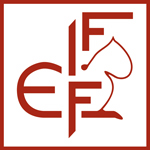Introduction
The Egyptian Mau is a colourful cat of medium size with a special spotted coat and a well developed muscled body.
History
The Egyptian Mau is considered to be the cat of the Ancient Egypt, but as a matter of fact it’s breeding started much later in the United States. The selective breeding of the Maus is also due to a Russian princess that was fascinated by some cats that belonged to an Egyptian ambassador to Italy. She decided to import some of these cats into the USA and started the breeding there. The MAU has been anyway always present in Europe, and especially in France, Italy and Switzerland. Although it is very difficult to have information about them before WWII. The connection with the Egyptian times has its origin from the many cats mums that have been found in Egypt (there cats where adored like gods) and some ancient paintings in the Pharaoh tombs that very often shows spotted cats.
Appearance
The head shape of the Mau is without flat plans and of medium length. In profile has a gentle rise from the nose bridge to the forehead. His eyes are large and almond shaped and the colour is gooseberry green. The expression is alert also because of the ears setting and size. One of the characteristics of the breed is the presence of a loose skin flap below the belly to the knees and the body is well balance ,muscled and medium in size. The coat is another special feature. It has many spots, small and rounded, and all over the body, to the legs and even the tail. The breed is recognized in only three varieties, Silver, Bronze and Smoke. This last one has a really special appearance due to a very evident ghost markings in spotted shape.
Temperament
Maus are extremely lively and friendly. They are fast, athletics and never stand still. It is a breed that needs more than one pair of eyes to supervise their lively style of life. They are very attached to humans with whom they can have also quite some intense “conversations”.
Breed Standard
Last modification of the Standard: 2025
